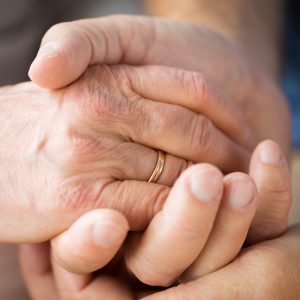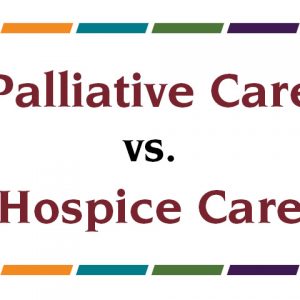by Roxanne Smedsrud, RN, CHPN
What does a good death mean to you? How does it look or feel?
I’m sure if you ask 10 people, you would get 10 unique responses to these questions. We all have different life experiences, expectations and beliefs that shape our answers.
A Personal Perspective
After working as a hospice nurse for more than 26 years, I’ve had the honor of being with many patients and families at end-of-life, but I don’t think I truly understood what a good death was until I watched someone I love die.
My grandma’s death was one of the most peaceful experiences I’ve ever witnessed. She was well-loved and cared for at her assisted living facility. The staff loved her and did a great job caring for all her physical and emotional needs. She was very happy!
To this day, I feel so fortunate my grandma lived at that particular assisted living facility. Between the assisted living facility staff, hospice staff and family nearby, Grandma had all she needed to be comfortable. This continues to be a comfort to our family, even now many years later.
As Death Neared
We knew Grandma was dying well before her last day. She had become much more forgetful, even confused at times, and we noticed she was sleeping much of the day. Grandma had very little energy and required increased assistance with eating, bathing, walking and other activities of daily living. She had also been hospitalized twice in the previous six months with urinary tract infections, which are common at end of life for people who have dementia, and she eventually was placed on antibiotics every other day to hopefully prevent any repeated infection. Finally, her appetite had become very poor; she lost 15 pounds in just a few months.
It was oddly comforting to know that these are common signs of approaching death. That doesn’t mean it wasn’t incredibly difficult to witness and didn’t make the pain of losing Grandma easier. Knowing the process was natural and normal eased some of my family’s distress and worry. We cherished each moment, hugged a little longer and appreciated our visits that much more because we knew time was short.
A Special Moment
The afternoon Grandma passed, my mom and uncle were with her. Mom was paging through Grandma’s Bible when a piece of paper with a Bible verse written on it fell out. It was a verse that Mom was supposed to read at a Christmas program at church when she was four years old. When the time came for Mom to read the verse, she wouldn’t go out on stage. My mom had always felt like her mother was upset with her for not reading the verse, even though she was only four. When my uncle saw the verse had fallen out, he told my Mom that she could finally read the verse to Grandma. While holding Grandmas’ hand, Mom read the verse and when she finished, grandma took her last breath.
The whole family could not believe how peacefully she had died. She had no pain, no anxiety, no restlessness, no secretions. It was the most peaceful death anyone could ask for.
As a hospice nurse, that’s what I hope and try to provide for every one of my patients—both for them, and for the peace of mind and comfort it brings their families. When I am caring for someone, I always think, I can’t change their disease or their health decline, but I can help them be comfortable and peaceful up until death.
These months, weeks, days and moments leading up to death are tender—some even say they’re sacred. The process of dying is a human experience, not a medical occurrence.
That’s what a “good death” looks like to me.
Roxanne Smedsrud, RN, was a hospice nurse for 28 years with Hospice of the Red River Valley.
About Hospice of the Red River Valley
In 1981, Hospice of the Red River Valley was founded on the belief that everyone deserves access to high-quality end-of-life care. We fulfill our nonprofit mission by providing medical, emotional, personal and spiritual care, as well as grief support to our patients, their families and caregivers during a tender time in life. Our staff helps those we serve experience more meaningful moments through exceptional hospice care, 24 hours a day, 365 days a year, wherever a patient calls home. The organization serves more than 40,000 square miles in North Dakota and Minnesota, including in and around Bismarck, Detroit Lakes, Devils Lake, Fargo, Fergus Falls, Grand Forks, Lisbon, Thief River Falls, Valley City and many more communities. Hospice of the Red River Valley offers round-the-clock availability via phone, prompt response times and same-day admissions, including evenings, weekends and holidays. Contact us anytime at 800-237-4629 or hrrv.org.




